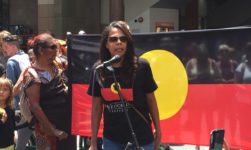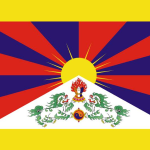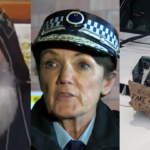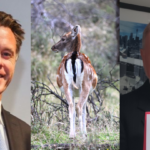The Coalition’s Silence on Treaty: An Interview With Indigenous Rights Activist Lynda-June Coe

Noongar man Ken Wyatt made history last week when he was sworn in as the nation’s first Indigenous affairs minister. First Nations organisations across the country said that the appointment was one that spoke of hope.
This historic first also provides a moment to reflect on the state of the nation, as it’s taken over half a century to appoint an Indigenous person to the cabinet position charged with dealing with First People’s affairs since it was created back in 1968.
Right now, Aboriginal and Torres Strait Islander people are the most incarcerated people on Earth, and despite a formal apology for the Stolen Generations being issued over a decade ago, First Nations children are still being removed from their families in record numbers.
And while there’s no denying that Mr Wyatt’s appointment to this portfolio is significant – and further, as things should be – he holds this position as part of the conservative Liberal Nationals government under which little has change for Indigenous peoples over the last six years.
Talk, but not of treaty
Since being elected PM, Scott Morrison has stated he’s committed to constitutional recognition, but he’s going “to take as long as is need to achieve that”. And during the election his government promised $7.3 million to develop a referendum on the issue, along with $160 million to carry it out.
But, it’s unclear as to what Morrison means by this, as constitutional recognition is the inclusion of First Nations peoples in the Australian Constitution. And this proposition was long ago rejected by the Uluru Summit as a token gesture.
Produced at the summit, the Uluru Statement from the Heart advocates for a Voice to Parliament: a constitutionally-enshrined First Nations representative body. And the question is whether Morrison means to have a national vote on this proposal, which he and ex-PM Turnbull previously rejected.
And underlying all of this debate is the call for treaty: formal agreements between Australian governments and First Nations that would recognise Indigenous sovereignty, land rights and custodianship. A substantial proposition the government continues to steer clear of.
The right to self-govern
Indigenous sovereign rights activist Lynda-June Coe asserts that the national dialogue has to shift towards establishing treaties, as it’s the only viable way to bring about justice for her people, as well as reparations for crimes committed against them and their land.
The Wiradjuri and Torres Strait Islander woman was present at the Referendum Council’s First Nations Regional Dialogue on recognition in Dubbo in February 2017. And she also attended the Uluru Summit the following May.
Sydney Criminal Lawyers spoke to Ms Coe about what another three years under the Morrison government will mean for First Nations peoples, the need for action on the Indigenous suicide crisis, and why treaty is the only viable way to move forward for all parties.
Firstly, Ms Coe, Ken Wyatt has been appointed Indigenous affairs minister. He’s the first Aboriginal person to hold this position. In your opinion, what are the implications of his appointment for First Nations peoples?
In one sense, it has generated some hope. It is a watershed moment, in terms of an Indigenous person going into that position.
We need to be mindful, though, that he does represent a conservative government. And he essentially serves in the interest of the party, not Aboriginal and Torres Strait Islander people.
I’m also mindful of his track record, in terms of voting strongly against protecting the Great Barrier Reef, increasing Aboriginal land rights, and carbon prices.
These are issues that do impact Indigenous people and communities. And unless he is willing to step up and have a stronger voice in this area, he may fall into the trap of just becoming a black face in a white conservative group.
What has six years of the Coalition government meant for Aboriginal and Torres Strait Islander people? And what do you expect another three years under its governance will mean?
Over the last ten years, we’ve taken two steps forward and three steps back.
The Morrison government has refused to look strongly at the Uluru Statement. And his government hasn’t looked deeply enough into the Indigenous suicide epidemic that’s currently occurring across the country.
We are not taken seriously enough, and our issues are put on the backstep quite a bit, if not completely ignored. We are concerned that we’ll go straight to the back of the pile in terms of a social justice package or an Indigenous rights framework under this conservative government.
Morrison seems to mention the Indigenous suicide crisis occasionally, but he doesn’t act on it.
We are used to the rhetoric around Indigenous affairs, and nothing substantial coming about – no action on the ground. Such is the case with the failure in Closing the Gap.
We need to move beyond just words and into seeking transformative change within our communities. And since the prime minister isn’t leading this conversation or action, then what hope do we have as a people.
Morrison said he supports recognition. What’s your position on constitutional recognition?
I’m against constitutional recognition. There’s been a lot of research done on how Indigenous people actually feel about constitutional recognition and the evidence suggests that we strongly oppose it.
We want substantial change. Unless we address the issue of treaty or Indigenous sovereignty, then constitutional recognition is not going to change our lives significantly, or improve the quality of life that we have succumb to under a colonial regime.
We’re essentially putting the cart before the horse. Let’s talk about treaty. Then let’s talk about putting some form of legislative protection around treaty into the constitution. This ensures certainty that both parties are committed to the process of improving the settler-Indigenous relationship and redressing the impacts of dispossession, colonisation and genocide.
And let’s further talk about addressing the settler framework around terra nullius, which is fundamentally the foundation of Australia’s legal system and jurisdiction especially when applied to Indigenous legal matters.
Our law is still not recognised as a law within its own right. And until Australia can face up and have these confronting conversations, we’re in a position to say no, because we don’t want to be absorbed into a constitution that has historically excluded us in order to erase our cultural identities in our own country.
How do those ideas you’ve just expressed about treaty connect with the proposed Voice to Parliament contained in the Uluru Statement?
The Voice to Parliament is only one of the demands that came out of the summit. The second one was the Makarrata Commission, and the third was treaty.
There needs to be a reordering. Treaty should come first as priority, followed by the Makarrata Commission and truth telling, and then a Voice to Parliament, or seats in parliament, which would levy some kind of power sharing, in terms of being able to say no or to negotiate policy design and implementation.
An advisory body without any substantial power is just a token gesture. And Indigenous peoples are tired of distractions, which essentially is the path another advisory group to parliament would take. That is not treaty. That is not power sharing.
So, a Voice to Parliament would have no real power?
Yes, that’s correct.
In your understanding, what’s the way forward in regard to treaty?
Governments need to mature and come to the table around the unfinished business of treaty-making. Australia is the only Commonwealth nation to not have a treaty with First Nations people. It is a stain on their global identity in hope of moving forward as a nation.
The fact that we have the highest incarceration rate in the world and a growing suicide rate are issues that stem from the historical inaccuracy around peaceful settlement – and invasion.
Our mob have always resisted colonisation. The colonial project is relentless in diminishing and accounting for the fact that our mob are a sovereign people. But, we’ve always held this position and continue to do so to this day.
The momentum for treaty was building in the Hawke era with the Barunga Statement. But, he backed out of it. And it’s been back and forth in the public discourse for fifty years or so.
We should put treaty to the Australian public in a referendum. And then Indigenous people will know exactly where we stand in terms of our rights and protections within the confines of this post-colonial nation.
And lastly, Ms Coe, most of the talk in the press revolves around recognition or a voice. Is treaty what a majority amongst First Nations communities would like to see established?
I believe so. Our mob has always strongly advocated for a treaty and the issue continues to be about recognising Indigenous sovereignty. This goes right back to the 1920s civil rights movement, through to the 1970s with the Tent Embassy, and right up until the Reconciliation Walk across the bridge.
Treaty is the underlying factor of the movement. Treaty resolves conflict. Treaties offer a platform for justice, truth-telling and healing.
And it restores dignity and pride, not only for our mob, but for settlers as well.







